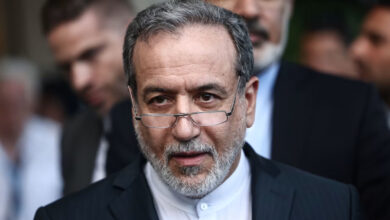Egyptian newspapers reported last week that Saudi Arabia’s Minister of Manpower Adel Fakieh told a gathering of businessmen at the Jeddah Chamber of Commerce that his country would not renew work permits for foreign laborers who have been in Saudi Arabia for more than six years.
The statement immediately raised concerns in official Egyptian circles over the potential negative impact of such a decision. According to the chairman of the union of companies employing Egyptian workers abroad, 2.5 million Egyptians work Saudi Arabia, 70 percent of whom have been working there for over six years. In other words, about 1.5 million workers could be threatened with expulsion, thus increasing the unemployment rate in Egypt.
Fakieh's statement coincided with the departure of an Egyptian popular diplomacy delegation to Iran, thus raising some suspicions that it was an indirect attempt by Saudi Arabia to pressure Egypt not to restore normal bilateral relations or full ambassadorial representation with Iran, a step that clearly disturbs Saudi Arabia. There may not be conclusive evidence of a correlation between the Saudi government’s decision and the visit of the Egyptian delegation, but such a possibility should not be excluded. If that is indeed the motivation behind the statements, it would once again represent an Arab decision-making pattern that is dominated by emotion, not rationality.
Saudi Arabia has the right to formulate its employment policy according to its national interests. Fakieh highlighted that there are currently 500,000 unemployed Saudis, about five percent of the total labor force of whom 28 percent are women. He said that the number of foreign workers in Saudi Arabia has increased by 2.4 percent in the last quarter of 2010, while it has dropped in the the Gulf region due to the global financial crisis.
Nevertheless, Saudi Arabia can safeguard its legitimate national interests without harming Egyptian or other Arab workers. It should also take into account its legal obligations, as it is a member of the Arab League and the Arab Labor Organization. Saudi Arabia maintains special historical and cultural ties with all Arabs. It should give priority to Arab laborers, especially as they constitute no more than six percent of the total foreign laborers.
Egypt, likewise, has the right to formulate its foreign policy according to its own national interests. The normalization of relations with Iran is intended to correct past mistakes that were committed by both sides. It does not mean Egypt would adopt Iran’s foreign policy or support its international positions. It only means we will consider ways to overcome differences, alleviate crises in the region and expand the scope of our common interests. Moreover, it's unreasonable for Gulf countries, who have diplomatic and commercial ties with Iran, to request that Egypt not rush to normalizing relations with Iran. Egypt should not accept such extortion.
It is time to base our decisions on rationality.
Translated and abridged from the Arabic Edition




